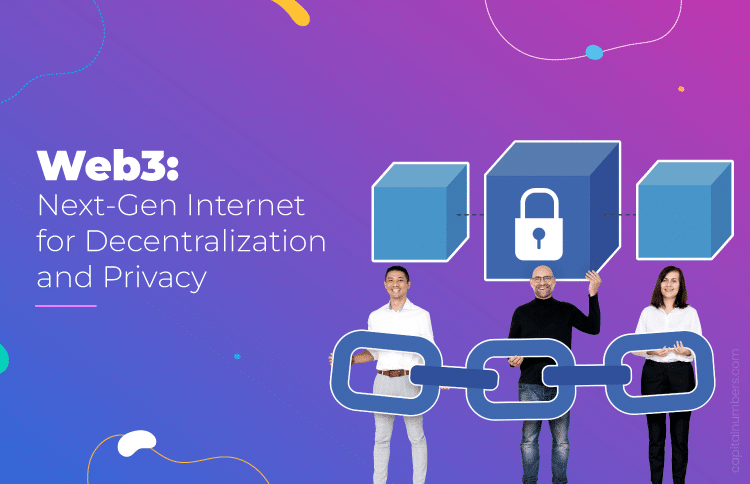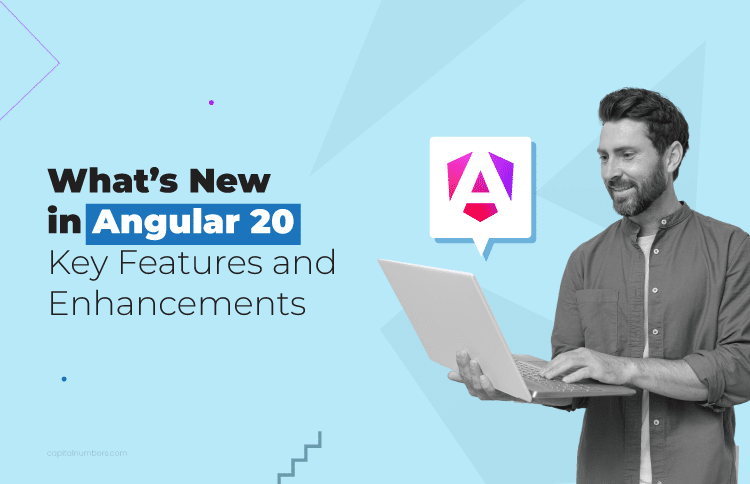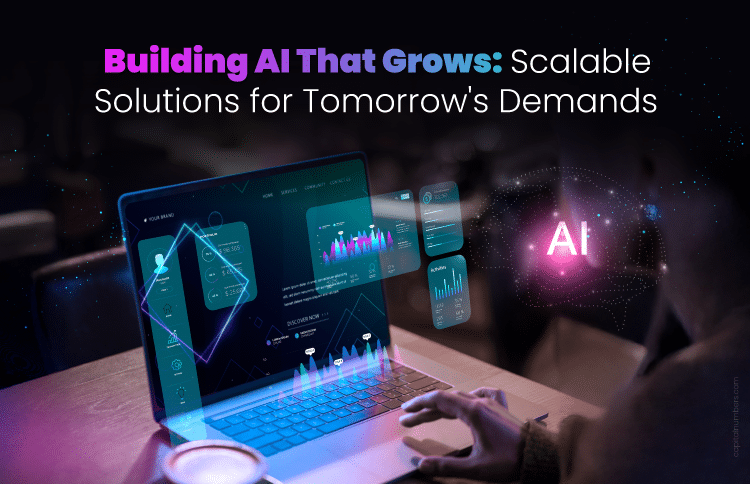Web3: The Next Generation of the Internet and Its Implications for Decentralization and Privacy
Table of Contents
The internet is constantly evolving, and we’re on the cusp of a new era: Web3. This next generation of the internet promises to be decentralized, secure, and user-centric, fundamentally changing how we interact with the online world. In this, we’ll delve into Web3, exploring its potential for decentralization and privacy and its implications for the future.
What is Web3?
Web3, often referred to as the decentralized web, represents a vision for the future of the Internet where control transitions from centralized entities, such as tech giants, to individual users. This shift is facilitated by groundbreaking technologies like blockchain, which offers a secure, transparent method to store and manage data without the need for a central authority. By decentralizing data storage and management, Web3 empowers users with greater autonomy over their digital identities and interactions, fostering a more democratic and resilient online environment.
Decentralization: Empowering Users
Currently, the internet is dominated by a handful of tech companies that control vast amounts of user data. This centralization raises concerns about privacy, censorship, and manipulation. Web3 aims to dismantle this power structure by distributing control across a network of users.
Here’s how Web3 empowers users:
- Data Ownership: Individuals control their data, deciding who can access and use it.
- Increased Transparency: Transactions and data are recorded on public blockchains, fostering trust and accountability.
- Reduced Censorship: No single entity controls the network, making it resistant to censorship and manipulation.
The Road Ahead: Challenges and Opportunities
While Web3 holds immense potential, it’s still in its early stages of development. Several challenges need to be addressed before it can reach its full potential:
- Scalability: Blockchain technology currently faces scalability issues, which need to be overcome to accommodate a larger user base.
- Security: Ensuring the security of decentralized systems and protecting users from potential vulnerabilities is crucial.
- User adoption: Encouraging widespread adoption and educating users about Web3 concepts will be essential for its success.
Privacy: Taking Back Control
Imagine a world where you’re not constantly bombarded with targeted ads based on your online browsing habits. A world where your personal information isn’t constantly collected and sold by companies. That’s the promise of Web3 and its focus on user privacy. It’s a complete overhaul of how we interact with the internet, putting the power back in your hands.
- You Are the Master of Your Digital Identity: Forget relying on social media giants to define who you are online. With Web3, you get to control your digital identity through something called a self-sovereign identity (SSI). Think of it as a secure digital passport that only you have access to. It holds all your verified information, like education or work experience, and you choose how and when to share it. No more handing over your data for every website you visit!
- Fort Knox for Your Data: Gone are the days of worrying about data breaches. Web3 utilizes blockchain technology, the same system that powers cryptocurrencies. Blockchains are like unhackable public ledgers that securely store and transmit your data. It’s like putting your information in a vault guarded by the strongest encryption available.
- Cutting Out the Middleman: Today, many online interactions involve companies acting as middlemen, collecting your data in the process. Web3 introduces decentralized applications (dApps). These are like apps you use now but without the data-hungry corporations behind them. You can interact directly with other users on dApps, reducing the amount of data collected and the potential for profiling.
This is Just the Beginning
Web3 is still young, but the potential for a more private internet is massive. There are even more exciting developments on the horizon, like:
- Zero-knowledge proofs: Imagine proving you’re old enough for a website without revealing your actual age! This cryptographic technique allows you to share only the necessary information for specific purposes. Let’s say you want to access age-restricted content. With zero-knowledge proof, you could verify you meet the age requirement without disclosing your birth date.
- Data as an asset: Web3 allows you to own your data, not just generate it. Imagine storing your medical records or diplomas on a secure platform you control. You could then choose to share this data securely with a healthcare provider or potential employer, and even get compensated for its use. This could revolutionize how we control and monetize our personal information.
- Privacy-preserving analytics: Web3 isn’t just about shutting down data analysis completely. Imagine a future where companies can analyze user data for targeted advertising or market research, but without ever identifying individual users. This would allow businesses to gain valuable insights while protecting user privacy.
Despite these challenges, Web3 presents an exciting opportunity to create a more equitable, secure, and user-centric Internet. As technology evolves and matures, its impact on various aspects of our lives, from online interactions to financial transactions, will become increasingly evident.
Web 3.0: The Next Phase of Internet Evolution
While Web 3 represents a significant shift towards decentralization, user empowerment, and privacy, Web 3.0 represents the next phase of internet evolution, bringing even more advanced and intelligent capabilities to the online world. Key characteristics and features of Web 3.0 include:
- Semantic Web:
In Web 3.0, data isn’t just linked; it’s structured in a way that computers can understand and interpret. This means adding extra layers of information to web content, like metadata and annotations, so machines can grasp the context and relationships between different pieces of information. Imagine a web where information is not only easy to find but also easy for machines to understand and act upon. - Natural Language Processing (NLP):
NLP lets computers understand and generate human language, making interactions with machines feel more natural and intuitive. Features like voice search, sentiment analysis, and language translation become more sophisticated, enhancing how we use web applications. Imagine asking your virtual assistant a question and getting a precise, human-like response. - Artificial Intelligence (AI) and Machine Learning:
Web 3.0 harnesses the power of AI and machine learning to analyze massive amounts of data. This allows for more personalized and intelligent user experiences. Think about virtual assistants that understand your needs, chatbots that provide smart customer service, and recommendation systems that suggest content you’ll love. These technologies make the web smarter and more responsive to your preferences. - Interconnected Devices (Internet of Things – IoT):
Web 3.0 goes beyond traditional web browsing to include various interconnected devices. From your smartphone and smartwatch to smart home appliances and industrial sensors, these devices communicate seamlessly. This interconnectedness enables real-time data exchange, leading to more integrated and automated workflows. Imagine your home adjusting the thermostat based on your preferences without you lifting a finger. - Data Interoperability:
Web 3.0 promotes data interoperability through standardized formats, protocols, and APIs. This makes it easier for different systems and platforms to share and integrate data. By breaking down data silos, Web 3.0 allows for more comprehensive and interconnected information networks. This means you can access and analyze data from multiple sources effortlessly, fostering innovation and collaboration.
Conclusion
In summary, The shackles of the current internet are about to break. Web3 promises a future where YOU are the boss. No longer will tech giants control your data. Blockchain technology acts like a digital vault, securely storing your information. You, and only you, hold the key, deciding who gets to see what through self-sovereign identities. Decentralized applications let you interact directly with others, cutting out the data-hungry middlemen. Web3 is about putting the power back in your hands, giving you control over your digital identity and online experience. Get ready for an internet that respects your privacy and empowers you.

















